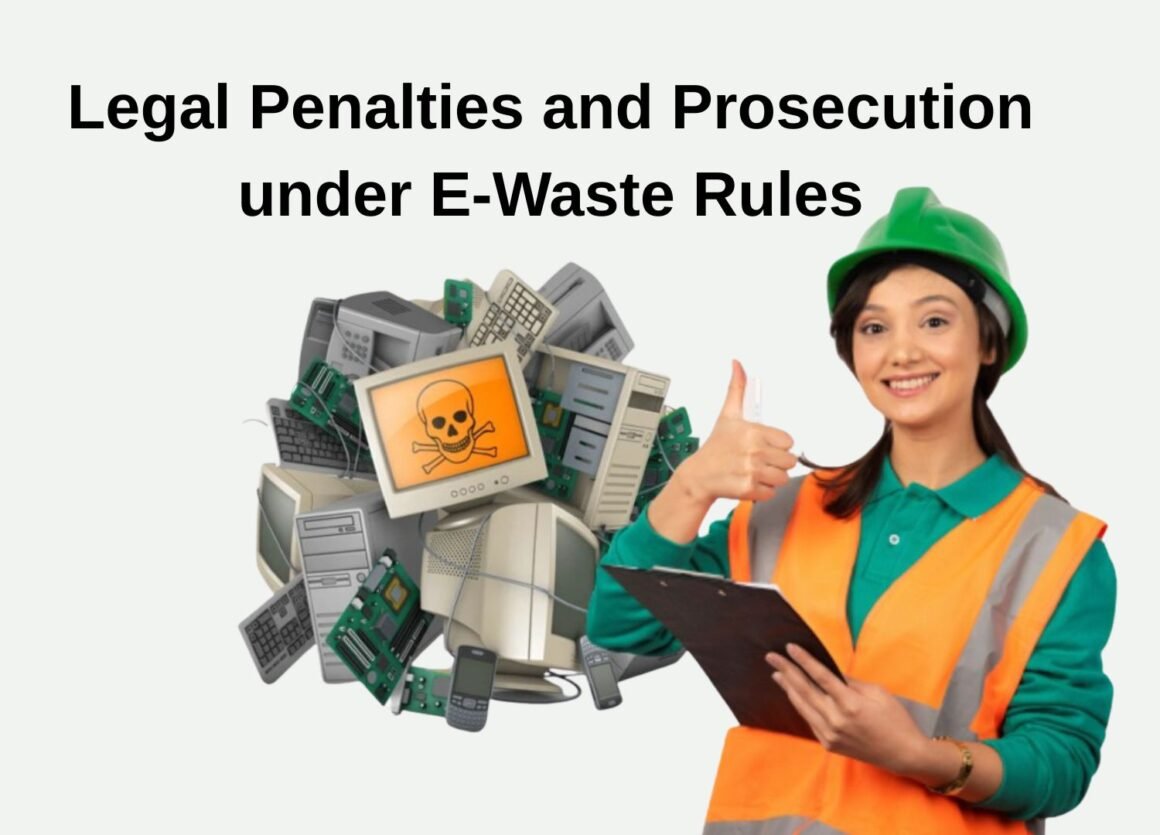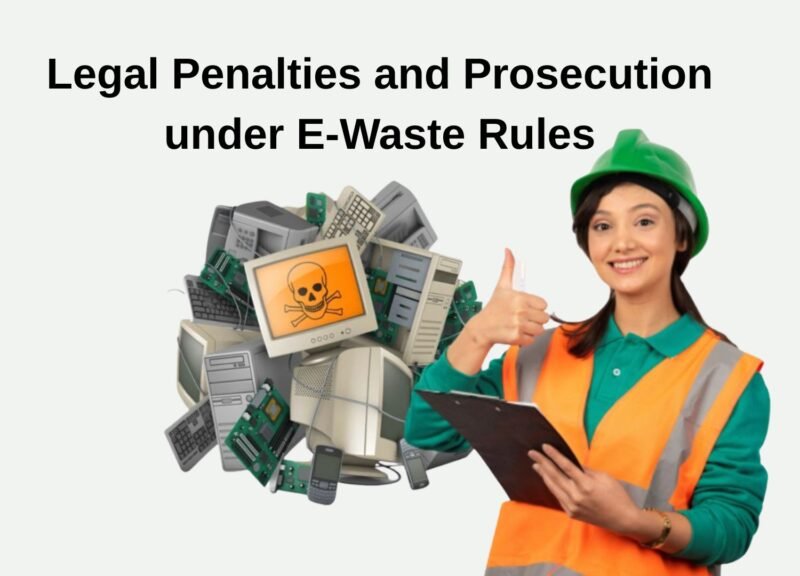Legal Penalties and Prosecution under E-Waste Rules
Electronic waste (e-waste) has become one of the fastest-growing waste streams in the world, driven by rapid technological advancement and increased consumer demand for electronic products. However, improper handling and disposal of e-waste pose significant threats to the environment and human health due to hazardous materials such as lead, mercury, and cadmium. To regulate this, governments have enforced E-Waste Management Rules under the broader framework of environmental protection laws. These rules carry legal penalties and prosecution mechanisms to ensure compliance and deter violators.

Legal Framework Governing E-Waste
E-waste management is governed by specific legislation depending on the country. In India, it is regulated under the E-Waste (Management) Rules, 2016, later superseded by the E-Waste (Management) Rules, 2022. These rules derive their legal authority from the Environment (Protection) Act, 1986, which empowers regulatory bodies to enforce compliance and penalize violators.
The enforcement is primarily carried out by:
- Central Pollution Control Board (CPCB)
- State Pollution Control Boards (SPCBs)
- Pollution Control Committees (PCCs)
These authorities monitor producers, recyclers, dismantlers, refurbishers, and producer responsibility organizations (PROs) for adherence to e-waste obligations.
Types of Violations under E-Waste Rules
Common violations include: Legal Penalties and Prosecution under E-Waste Rules
- Failure to register under the E-Waste Management Rules
- Non-compliance with Extended Producer Responsibility (EPR) targets
- Submission of false recycling or disposal data
- Operating unauthorized recycling or dismantling facilities
- Improper disposal or storage of hazardous e-waste
- Failure to maintain records or file annual returns
These violations attract financial penalties and may escalate to legal prosecution depending on severity.
Penalties under E-Waste Rules
Under the E-Waste (Management) Rules, 2022, the government introduced the concept of Environmental Compensation (EC). EC is levied on entities that fail to fulfil their EPR obligations or violate rule provisions.
Key penalty provisions: Legal Penalties and Prosecution under E-Waste Rules
- Penalty up to ₹1,00,000 for initial violations under the Environment Protection Act, 1986
- Additional fine of ₹5,000 per day for continued violations
- Environmental Compensation based on quantity of unfulfilled EPR targets
- Suspension or cancellation of registration on the CPCB portal
- Blacklisting of non-compliant companies
Example of Environmental Compensation Calculation
For Information Technology and Telecommunication Equipment (ITEW), EC may be imposed at ₹112 per kg of unfulfilled EPR target. Failure to deposit EC within the timeline leads to interest penalties and potential legal action.
Prosecution under the Environment Protection Act, 1986
Serious violations can lead to criminal prosecution. Section 15 of the Environmental Protection Act states:
- Imprisonment up to 5 years, or
- Fine which may extend to ₹1,00,000, or
- Both imprisonment and fine
In cases where violations continue beyond conviction, an additional fine may be levied daily. If the violation continues beyond one year, imprisonment may extend up to 7 years.
Enforcement Actions by Authorities
Regulators have the power to:
- Issue closure notices to illegal facilities
- Seize unauthorized e-waste stocks
- Block export or import permissions for violators
- Launch prosecution in environmental courts or judicial magistrate courts
- Publicly list defaulters on CPCB website to increase compliance pressure
Why Strict Penalties are Necessary
- Prevent illegal dumping of toxic waste
- Protect groundwater, soil, and air from contamination
- Safeguard informal sector workers from hazardous exposure
- Promote responsible e-waste recycling
- Strengthen circular economy and resource recovery
Conclusion: Legal Penalties and Prosecution under E-Waste Rules
The legal penalties and prosecution provisions under e-waste rules are designed to make compliance non-negotiable. With stricter monitoring through digital EPR portals, third-party audits, and Environmental Compensation mechanisms, regulators are ensuring that producers and recyclers take real responsibility instead of providing paperwork-based compliance. As enforcement intensifies, businesses must align with legal requirements to avoid penalties and contribute to sustainable e-waste management.
FOR MORE BLOGS – beyondthepunchlines.com

 Add to favorites
Add to favorites







